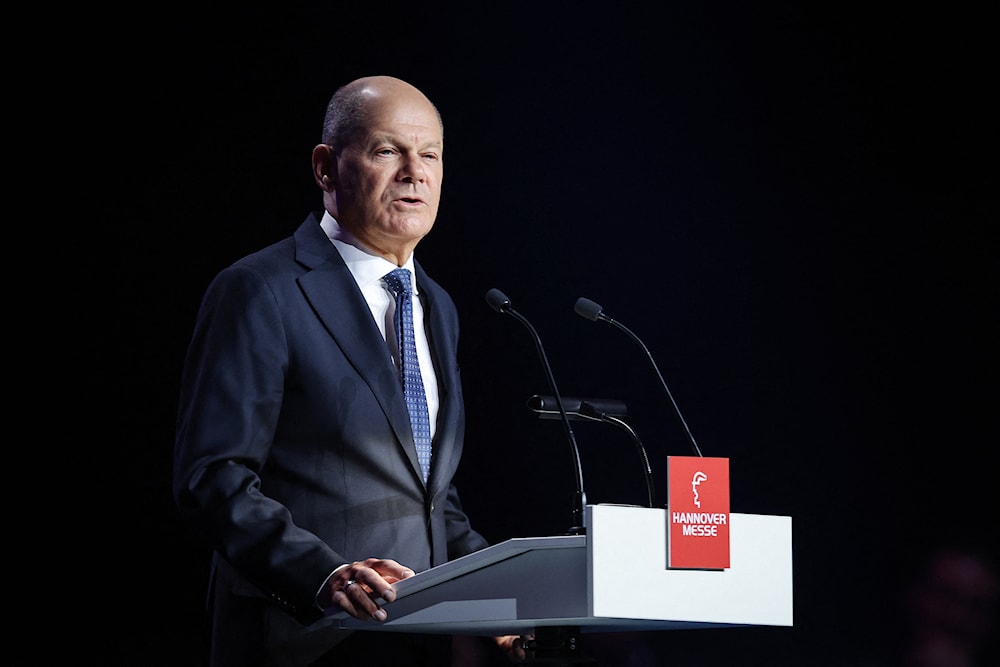EU will unite against Trump tariffs, but open to 'compromise': Scholz
German Chancellor Olaf Scholz also reaffirmed Canada's sovereignty amid the US president's intentions to annex the North American country.
-
 German Chancellor Olaf Scholz gives a speech at the opening of the Hannover Messe industrial trade fair for mechanical and electrical engineering and digital industries, on March 30, 2025, in Hanover, northern Germany (AFP)
German Chancellor Olaf Scholz gives a speech at the opening of the Hannover Messe industrial trade fair for mechanical and electrical engineering and digital industries, on March 30, 2025, in Hanover, northern Germany (AFP)
Europe is committed to cooperation with the United States, but the European Union would respond collectively if Washington imposed tariffs on steel and aluminum, German Chancellor Olaf Scholz emphasized on Sunday.
Speaking at the opening of the Hanover industrial trade fair, where Canada is this year's partner country, Scholz also reaffirmed Canada's sovereignty.
His remarks came in response to US President Donald Trump, who has previously suggested annexing Canada and referred to it as the 51st US state.
"We stand by your side!" Scholz underscored, stressing that "Canada is not a state that belongs to anyone else. Canada is a proud, independent nation."
Regarding Trump’s proposed tariffs, the German Chancellor countered "my country first" policies by advocating for expanded free trade, enhanced competitiveness, and greater technological sovereignty.
He asserted that Europe is neither naive nor weak, warning that trade wars harm all parties involved.
"So I say to the United States: Europe's goal remains cooperation. But if the U.S. leaves us no choice, such as with the tariffs on steel and aluminium, we as the EU will react as one," Scholz indicated.
But the bloc was "always and at all times firmly prepared to work for compromise and cooperation," he said.
Trump has announced extensive tariffs targeting both allies and rivals, including a 25% duty on auto imports set to take effect next week.
A 25% US tariff on steel and aluminum imports from various countries was implemented in mid-March, prompting the European Union to prepare countermeasures, which are expected to take effect in April.
Germany, a leading automobile manufacturer and exporter, stands to be particularly affected by the auto tariffs. The issue was a key focus during Finance Minister Joerg Kukies’ recent visit to Washington.
The German government has vowed a firm response, with a spokesperson pointing out that "nothing is off the table."
In contrast, Italian Prime Minister Giorgia Meloni took a more conciliatory stance on Saturday, advocating for a "reasoned" approach to the escalating trade dispute.
Meanwhile, European Commission President Ursula von der Leyen previously said she "deeply" regretted the US tariffs on automobiles, emphasizing that the EU remains committed to pursuing "negotiated solutions".
Read more: $6 trillion in US revenue from tariffs over a decade, Navarro claims

 3 Min Read
3 Min Read










